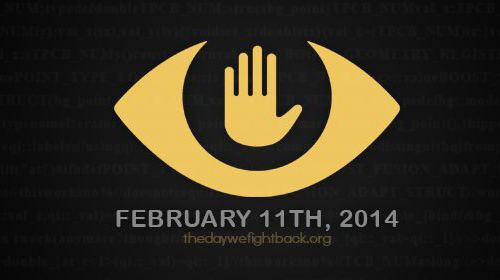
These piece ran originally at .
As you cruise the internet, check Facebook or shoot out a few tweets today, you might notice something strange: a massive digital protest aimed at stopping the NSA surveillance machine. Over 6,000 organizations, companies and websites have pledged their support to roll back the surveillance state by inundating members of Congress with calls, emails, tweets and Facebook posts in support of the USA Freedom Act, a with nearly 150 bipartisan cosponsors that would end the bulk collection of Americans' sensitive records. Today is .
But to fight back effectively, Americans need to know where the facts stand right now, more than eight months since the Edward Snowden leaks began.
Within minutes after the Guardian published that first leak on the NSA's activities, pro-surveillance forces starting making bold claims about how necessary broad spying is to our very security. And almost every justification for indiscriminate spying on Americans and people abroad has been methodically refuted ever since. It turns out that assertions made by the administration, members of Congress and security commentators were little more than myths. So enough with the misleading statements and half-truths designed to distort reality. Here's a quick rundown and rebuttal of the surveillance falsehoods that still need refuting to this day.
Myth No 1: NSA surveillance programs have thwarted terror attacks here at home.
At early congressional hearings, administration representatives insisted that spying programs, including the now infamous collection of phone records in bulk, had stopped . As members pushed for more detail, the administration said around 10 of those were based in the US. Weeks later, the number shrank to four - and then ultimately in Southern California, where a San Diego cab driver was convicted of sending $8,500 to a Somali terrorist group.
In fact, there were no attacks in America thwarted by domestic spying. This led both the independent and the president's hand-picked to find that the phone records program added no unique value to the many surveillance programs already underway.
Myth No 2: NSA data-crunching programs only work if you collect all information on everyone.
Pro-surveillance advocates immediately took up this banner once it was reported that essentially all phone calls in the US were collected under provisions of the Patriot Act. Of course, this argument fell apart once no cases could be found supporting the need for bulk collection. The claim was also dealt a serious blow by the conclusion of the Privacy and Civil Liberties Oversight Board that bulk collection has not provided the NSA any information that it could not have acquired using targeted surveillance.
and are now reporting that the collection rate of phone records is somewhere between 20 and 30% and is largely targeted at landlines. If this is true, the "collect-it-all" argument has no leg to stand on.
Myth No 3: All relevant decision-makers were briefed on the programs and approved them.
Some members of Congress were briefed on the telephone record program, but by and large . In fact, the House Intelligence Committee is still denying members of the House access to information about NSA surveillance to this very day.
The rest of the newly revealed programs - such as a decade-long program to track email communications, overseas hacking and broad searches of internet records - have not been addressed by the administration in any detail. Most members of Congress are unaware of how these and even broader programs affect people here and abroad.
Myth No 4: There's simply no other less-intrusive way to achieve the same ends.
It's not clear what the "ends" are since they don't seem to be tied to actually stopping terrorist attacks. But if the NSA's goal is to collect phone and other records to advance investigations, the government has many tools already at its disposal that operate with some sort of specificity or suspicion, including emergency authorities that allow them to seize records and follow process later if life or limb is at risk. Both the Privacy and Civil Liberties Oversight Board and the president's Review Group confirmed this in their respective reports.
Myth No 5: President Obama's changes sufficiently address the privacy violations revealed in the last eight months.
The president's apparent decision to stop the NSA from amassing Americans' phone records without suspicion is a good first step but addresses only the tip of the iceberg. Notably absent from the president's recent on surveillance was a commitment to endother forms of bulk collection. Congress needs to finish the job by rewriting the laws to ensure that no records or communications can be collected in a mass, suspicion-free fashion and that the government's tools be targeted only at those suspected of wrongdoing.
Moreover, Congress needs to address the significant way in which international and foreign surveillance affects the rights of not just US citizens and residents, but of foreigners, whose right to privacy the president recently recognized. Part of the solution will undoubtedly involve clarifying and adding appropriate limitations on vague surveillance laws and executive orders.
Now that you know where the truth stands, the administration and its supporters are left only with claims that trolling through our data provides "" and that someday in the future these massive databases will somehow thwart a terrorist attack. Those are inadequate justifications for widespread spying on everyday people, particularly in a democracy. That's why the ACLU and over 6,000 other organizations, companies and websites are taking action. Today we tell our members of Congress that the time has come to take our privacy back and rein in the NSA by passing the USA Freedom Act.
Join us, and that indiscriminate mass surveillance is un-American.
Learn more about government surveillance and other civil liberty issues: Sign up for breaking news alerts, , and .

